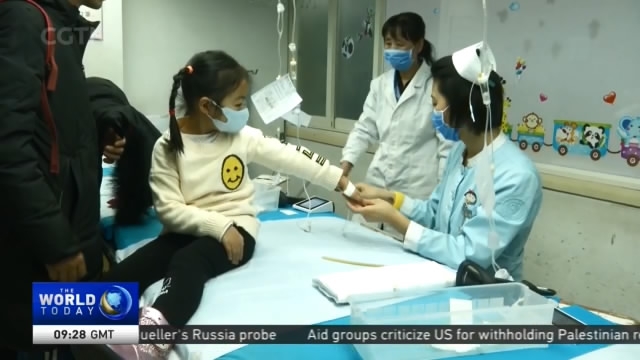
18:39, 25-Jan-2018
Healthy China: Government introduces incentives for general practitioners

The term general practitioner, or GP, refers to medical workers, who work in primary medical institutions and carry out integrated tasks. As part of efforts to pave the way for a tiered medical system, the Chinese government has announced detailed polices to raise GP salaries, encourage private GP clinics, and promote medical education. CGTN's Wu Guoxiu has the story.
They are often referred to as the gatekeepers of people's health. They treat common diseases, promote health care knowledge and serve as family doctors. The number of general practitioners in China has doubled to 209 thousand since 2012. New measures are designed to raise that number to over 300 thousand by 2020, and to 700 thousand by 2030 until there are at least five GPs for every 10,000 people.
ZENG YIXIN, DEPUTY DIRECTOR NATIONAL HEALTH & FAMILY PLANNING COMMISSION "This document answers the most prominent problems, including how attractive it is to work as a GP. There will be breakthrough in salary levels, and job promotions, in order to attract more young talent."
GPs holding a bachelors degree will be treated as if they held a masters during recruitment efforts, promotion decisions, and after retirement if they work on a community level. And they won't need to show any foreign language scores while applying for senior professional titles.
WU YAN, DIRECTOR HIGHER EDUCATION DEPT., MINISTRY OF EDUCATION "Since 2010, we have helped over 40 thousand people with bachelors degrees become GPs in mid-western regions, for free. It enabled each county-level clinic to have one GP with a bachelors degree."
The Ministry has also announced plans to set up national standards for GP training. More higher medical education institutes are expected to create more bachelors degree programs. And the government is encouraging private GP clinics, as part of a tiered medical system. According to China's health authority, in the future over 80 percent of patients will be able to see a GP at a primary clinic, instead of having to crowd inside a big hospital. Wu Guoxiu, CGTN, Beijing.

SITEMAP
Copyright © 2018 CGTN. Beijing ICP prepared NO.16065310-3
Copyright © 2018 CGTN. Beijing ICP prepared NO.16065310-3